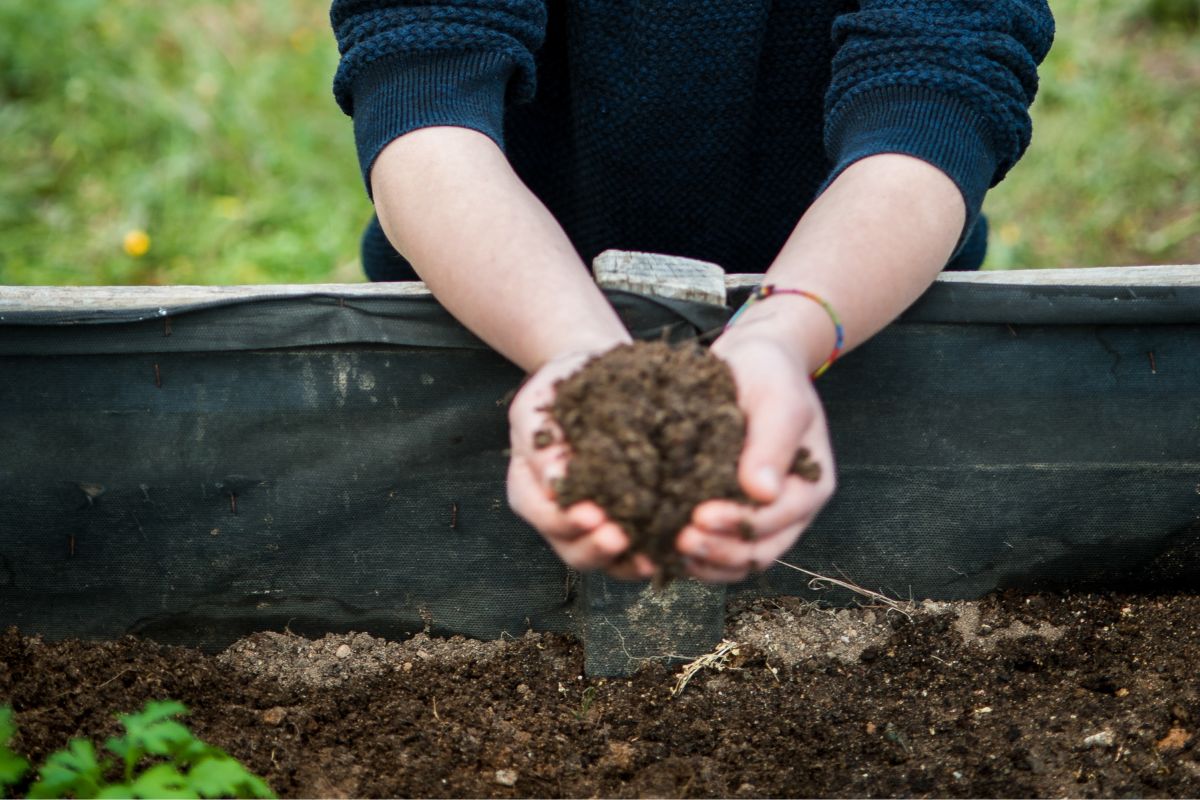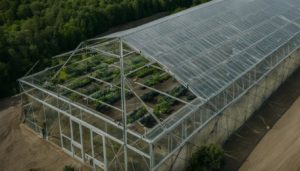Composting is one of the most powerful tools humans should seriously consider to save Planet Earth.
It’s an easy, cost-effective way to reduce waste and help the environment.
Every little bit helps when it comes to protecting Mother Nature from pollution, so composting is a great way to do your part!
In this article, we’ll look at why composting is good for the environment – and how you can get started right away.
So, let’s dive in and see what all the fuss is about!
Definition
Composting is one of the most cost-effective and natural ways to create nutrient-rich soil for your plants, while avoiding contamination from chemical fertilizers.
But what exactly is composting?
Composting is the process of breaking down compostable materials into humus, or rich organic matter which can be added to soil.
This process has lots of environmental benefits. Let me tell you about them.
Environmental Benefits Of Composting
Composting is a great way to help the environment.
Well, by using compost in place of chemical fertilizers, you’re helping reduce pollution by reducing the amount of harmful chemicals being released into our water sources.
Compost also helps keep landfills emptier since more organic waste can be diverted away from them instead. By extension, this reduces chemical toxins released to water sources.
And above all, it provides the soil with essential nutrients!
Let’s discuss each of these benefits in greater detail.
Nutrient-Rich Soil
Just like a chef’s secret ingredient, composting gives your soil the nutrition it needs to thrive.
By adding organic matter and microorganisms to the mix, you can transform lackluster dirt into nutrient-rich soil.
Aerobic bacteria break down the material in compost piles, releasing essential minerals that help plants grow strong.
The addition of this organic material also increases water retention for better hydration which in turn contributes to water conservation as well as energy savings when using irrigation systems.
The use of organic materials for the garden or lawn also improves soil structure and as such, fosters stronger root development.
In case you’re not aware, composting has been found to result in higher crop yields compared to traditional farming methods without compromising quality.
With all these benefits, it’s no wonder why composting is being hailed as an environmental hero!
Landfill Reduction
Composting is a great way to reduce landfill waste.
It keeps landfills emptier since more organic waste can be diverted away from them instead, by breaking them down.
By breaking down organic materials such as food scraps and yard trimmings, composting reduces the amount of trash being dumped into landfills.
With fewer items ending up in landfills each year, we’re able to drastically reduce our carbon footprint on the environment.
Protect Water Sources
Composting greatly contributes to preventing toxic runoff from entering our waterways.
In essence, using compost to fertilize our gardens/lawns reduces reliance on chemical fertilizers which eventually, in one way or another, end up flowing to water sources, and subsequently leaving the chemical toxins therein.
With compost, there’s no such toxicity risk!
It’s safe to also say that composting protects wildlife habitats by preserving water quality, keeping toxins away from the water sources, which are in turn home to lots of animals!
Coming up next, how composting reduces carbon footprint!
Carbon Footprint
Composting is one great way to reduce emissions by sequestering carbon from the atmosphere and returning it back into soil.
This helps improve the health of soils and supports important sustainability practices that help maintain a healthy environment for all living things.
This process allows us to recycle food waste, which can otherwise end up in landfills as part of an unsustainable cycle with detrimental effects on our planet.
The compost produced through this process can be used instead as natural fertilizer or mulch, creating better growing conditions while reducing reliance on chemical fertilizers and other additives.
All these benefits make it clear why composting should be encouraged among households and businesses alike.
How To Start Composting
Composting is an easy way to help the environment and conserve energy. It’s all about taking organic waste, like food scraps or old plants, and turning it into something useful!
Home composting can be done on your own property with a small space for collecting materials, while urban composting often uses large-scale facilities where you bring in your yard waste for reuse.
No matter which type of composting you choose, it’s important to have access to the right supplies.
A good set of tools will make sure that everything is broken down properly so nutrients are released back into the soil. You’ll need containers such as bins or buckets to store all the material before it breaks down completely.
Finally, proper aeration and moisture levels must be maintained throughout the entire process.
The length of time this process takes will vary but generally it can take anywhere from eight weeks up to six months.
The speed of decomposition depends on:
- The amount of material
- The type of material (food waste vs yard clippings)
- Temperature of your pile
- The composting method
These days there are plenty of resources available online that provide information on composting techniques and tips – making home composting easier than ever before! Plus, with everyone getting involved in this cause, you can expect big changes for our planet soon enough!
So let’s get started – let’s start composting today and do our part for the environment!
Conclusion
Everyone has a responsibility to do their part in taking care of the environment- composting is one great way to do it!
A great analogy for composting is like baking a cake – both require specific ingredients added together just right in order to get the desired result. With time and care put into your composting efforts, you’ll soon have enough nutrients-rich soil to use throughout your garden or landscape.
Everyone should do their part in helping out Mother Nature, so why not start with something as simple as composting? It’s easy to do and you’ll reap countless rewards for years to come!
Frequently Asked Questions
How Often Should I Turn The Pile?
Turning your compost pile has many benefits when it comes to getting organic matter and beneficial critters in there.
Generally, you should try to turn the compost pile at least once every week by using a shovel or pitchfork to mix up the material inside.
This helps aerate the pile, which encourages microbial growth that will break down the scraps into nutrient-rich soil.
How Do I Know When The Compost Is Finished?
Monitoring the temperature, moisture content and ingredients of your compost pile are key indicators as to when it’s finished.
You’ll know it’s done when it looks like soil and has an earthy smell.
To ensure successful pest control during the process, monitor temperatures in the range of 90-140 F (32-60 C).
By monitoring these key factors, you can have perfectly aged compost that will be beneficial for your garden!
How Much Compost Should I Use On My Garden?
Generally speaking, a good amount of compost for aerating soil and providing sustainable gardening benefits would be between two and five inches deep per growing season.
You could also consider incorporating worm composting or adding some compost tea into the mix for extra green recycling benefits.
Whatever approach you take, with proper care and attention, your plants will thank you for making the switch to composting!
How Long Does The Composting Process Take?
The composting process can range from 8 weeks to 6 months or even years depending on:
- The composting method
- The amount of material
- The type of material (food waste vs yard clippings)
- Temperature of your pile
So, make sure you have all the necessary tips and knowledge before starting this project!
With some patience and diligence, however, you’ll be rewarded with rich soil that will help your garden reach its full potential.
What Materials Can I Add To The Compost Pile?
Composting is a great way to recycle kitchen scraps, grass clippings, dry leaves, coffee grounds, crushed eggshells, untreated wood chips, shredded paper products, among others.
It’s important to balance moisture levels, add the right kind of materials like worms, and avoid contaminants when building your compost pile.
This helps mitigate climate change by reducing methane emissions that are created in landfills. With some patience and effort you can create nutrient-rich soil that will help gardens flourish while helping our environment at the same time.
Photo by Corelens.


